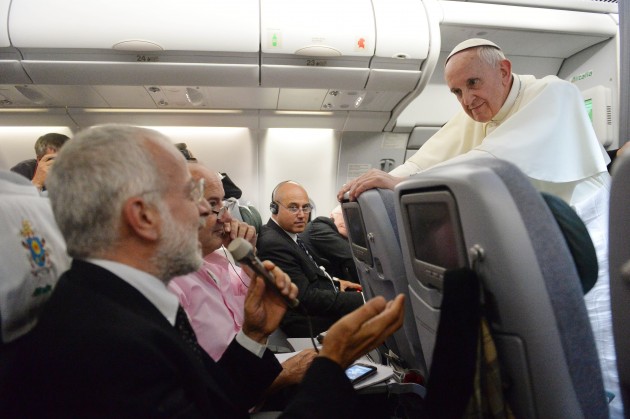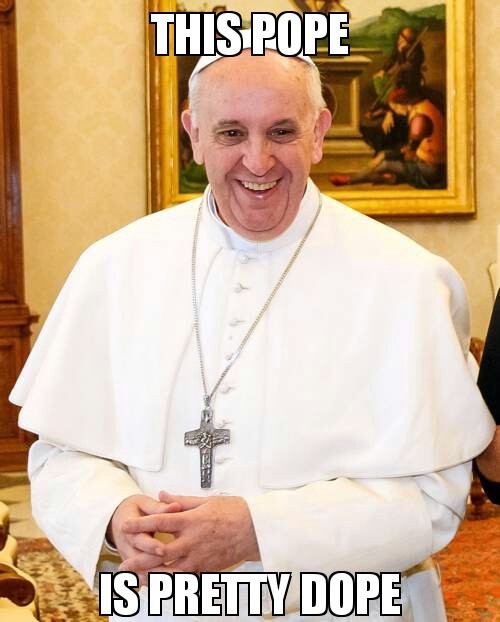
Pope Francis, as it was widely reported, said yesterday that he won’t judge priests for their sexual orientation.
Given the Catholic Church’s stance on same-sex marriage (especially the Archdiocese of Saint Paul and Minneapolis), many took this as a change of policy. Or rather, catechism.
Slow down, says National Catholic Register blogger Jimmy Akin:
How new is this?
Not very.
Disclaiming a right to “judge” others is something that goes back to Jesus. It does not mean a failure to recognize the moral character of others’ actions, however.
One can form a moral appraisal that what someone else is doing is wrong (Jesus obviously does not forbid that) without having or showing malice toward them.
The statement that they should not be marginalized is similarly in keeping with the Holy See’s approach to the subject, as 1986 Vatican document On the Pastoral Care of Homosexual Persons.
The statement that same-sex attraction “is not the problem,” when understood correctly, is also nothing new. “The problem,” as Pope Francis seems to here be understanding it, is going beyond merely having a sinful tendency–a temptation to which one is subject.
Obviously, temptations are problem, but if we resist temptation we do not sin. “The problem,” on this understanding, is giving into the temptation and sinning or–worse–building an ideology around the sin and trying to advocate the sin.
Finally, the statement that “they’re our brothers” is also no novelty. Christians, like everyone, have struggled with every sort of temptation all through history.
Same-sex attraction is just one temptation among numerous others, and the fact that a person suffers from this temptation no more deprives him of the status of being a brother in Christ than any other temptation does.
Akin also says the press is “painting a false picture by contrasting the ‘good’ Francis and the ‘bad’ Benedict.”
Francis’s remarks [are not] contrary to the approach Benedict took during his pontificate.
What is changing, says The Atlantic’s David Perry, is tone.
And so we watch Pope Francis’ incremental revolution continue. He changes tone without changing theology, and tone, when one is the leader of the Catholic Church, matters. It’s easy to take these off-the-cuff statements too far, but homosexual acts, in the eyes of the Church, remain sinful — as does all non-procreative sex. Similarly, a few months ago, Pope Francis did not say that atheists who are good all go to heaven. And yet, merely by making homosexuals and atheists not inherently the enemies of the faith, Francis brings about change.
And perhaps that is why we are seeing such a change in attitudes toward the Vatican. Especially, from what I’ve noticed, among the young Internet crowd. A recent poll backs that up, too.
 (Source)
(Source)
